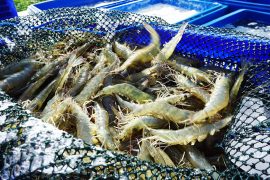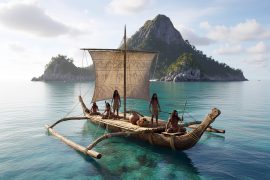
Neanderthal tooth offers clues to ancient paleo diet
Thanks to a Neanderthal tooth, anthropologists now know a lot more about what humans’ ancient cousins ate.
And they definitely weren’t vegetarians, the tooth revealed.
A study of the tooth’s nitrogen isotope ratios showed that the Neanderthals relied very heavily on meat, in what the researchers called a “very monotonous diet.” Mammoth was a common part of their meals, as was horse and reindeer meat.
“Using this technique, we discovered that the Neanderthal of Les Cottés had a purely terrestrial carnivore diet,” lead author Dr. Klervia Jaouen of the Max Planck Institute for Evolutionary Anthropology said in a press release.
Recently, evidence that Neanderthals ate plants had challenged the long-standing theory that the ancient people were carnivores. The Neanderthal tooth – from an adult woman who lived in France tens of thousands of years ago – had very high levels of nitrogen isotopes. That indicates a meat-based diet.
“She was not a late weaned child or a regular fish eater, and her people seem to have mostly hunted reindeers and horses,” Jaouen said. “We also confirmed that the Grotte du Renne Neandertal was a breastfeeding baby whose mother was a meat eater.”
The early Homo sapiens who moved into France as the Neanderthals disappeared have shown similarly high nitrogen isotope levels, probably from eating massive amounts of raw fish, according to researchers.
The team’s study of the Neanderthal tooth echoes earlier isotope analyses, which also pointed to a meat-based diet.
“Previous isotope results indicated a primarily carnivorous diet for Neanderthals, which matches the extensive archaeological record of animal remains found and deposited by Neanderthals,” said Dr. Michael Richards of Simon Fraser University told the Daily Mail. “These new compound-specific isotope measurements confirm earlier interpretations of Neanderthal diets as being composed of mainly large herbivores, although of course they also consumed other foods such as plants.”
The study has been published in the journal PNAS.
—
By Kyla Cathey, Earth.com staff writer













